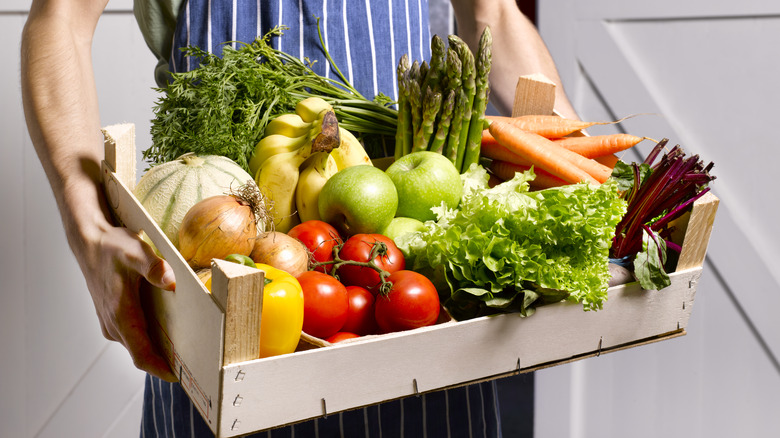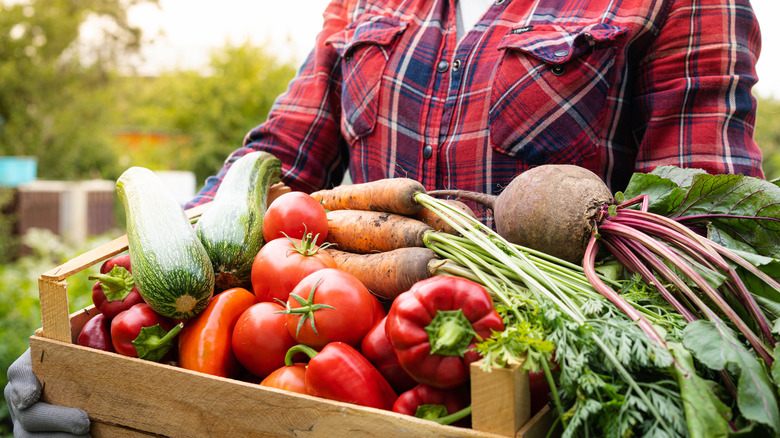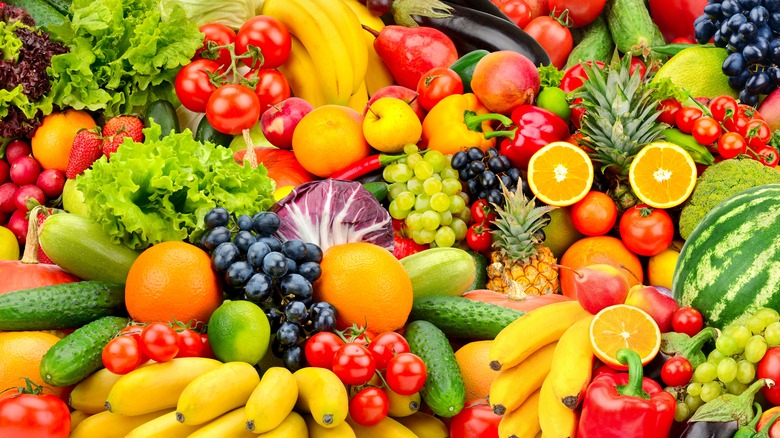What Costco Really Does With All Its Unsold Produce
Giving new meaning to the age-old expression "waste not, want not," Costco has found a couple of novel ways to keep surplus food out of landfills and put it to good use. First, the company sends excess produce to farms, where it is repurposed as nutritious feed for livestock. Secondly, Costco partners with food banks and other organizations to ensure that edible food reaches those in need.
While the average consumer may turn their nose up at a bruised banana or a misshapen carrot, the cows, pigs, and chickens on farms across America are licking their lips (well, not the chickens) at the prospect of dining on Costco's rejects.
This program not only provides farmers with a valuable source of livestock feed, but also highlights the potential for businesses of all types to find innovative ways to minimize waste. As consumers become increasingly conscious of sustainability, Costco's actions serve as an example of how companies can make a positive impact by rethinking their approach to surplus food. By channeling unsold produce to farms, Costco is not only reducing its environmental footprint, but also contributing to the well-being of local communities and ecosystems.
Feeding people in need as well
The other wonderful part of this "addressing food waste" equation is Costco's effort in partnering with food banks to donate items that don't meet its strict quality standards but are still perfectly good for consumption. This partnership has resulted in the donation of millions of pounds of food annually, ensuring that food-insecure families have access to essential items. By redirecting surplus food to local communities, Costco demonstrates its commitment to social responsibility, making a positive impact on both the environment and the lives of individuals facing food insecurity.
Costco's partnership with the Greater Vancouver Food Bank (GVFB) is a great example of the benefits of this program, as it donates both food and funds, contributing to the GVFB's efforts to provide nourishment to thousands in need. This partnership aligns with Costco's broader initiative of supporting food banks across North America by donating surplus produce, bread, protein, and dairy, as well as making monetary contributions. Together, Costco and GVFB continue to make a meaningful impact on the lives of those facing food insecurity in Greater Vancouver.
Food waste is a global initiative
This initiative highlights a growing awareness of the staggering amount of food discarded in the United States each year. According to the USDA, "food waste in the U.S. is estimated at between 30% to 40% of the food supply," which equated to approximately 133 billion pounds of food wasted in 2010.
This food waste not only represents a loss of resources — such as land, water, and labor — but also contributes to environmental problems, including greenhouse gas emissions from decomposing food in landfills. The reality is that much of this waste occurs at the retail level, where perfectly good produce is discarded due to cosmetic imperfections or because it fails to meet strict sell-by dates.
Addressing food waste is gaining significant attention globally as awareness grows about its environmental, economic, and social impacts. Governments and organizations worldwide are increasingly implementing policies and initiatives aimed at reducing food loss, highlighting the urgent need for sustainable solutions to ensure food security while mitigating climate change.



